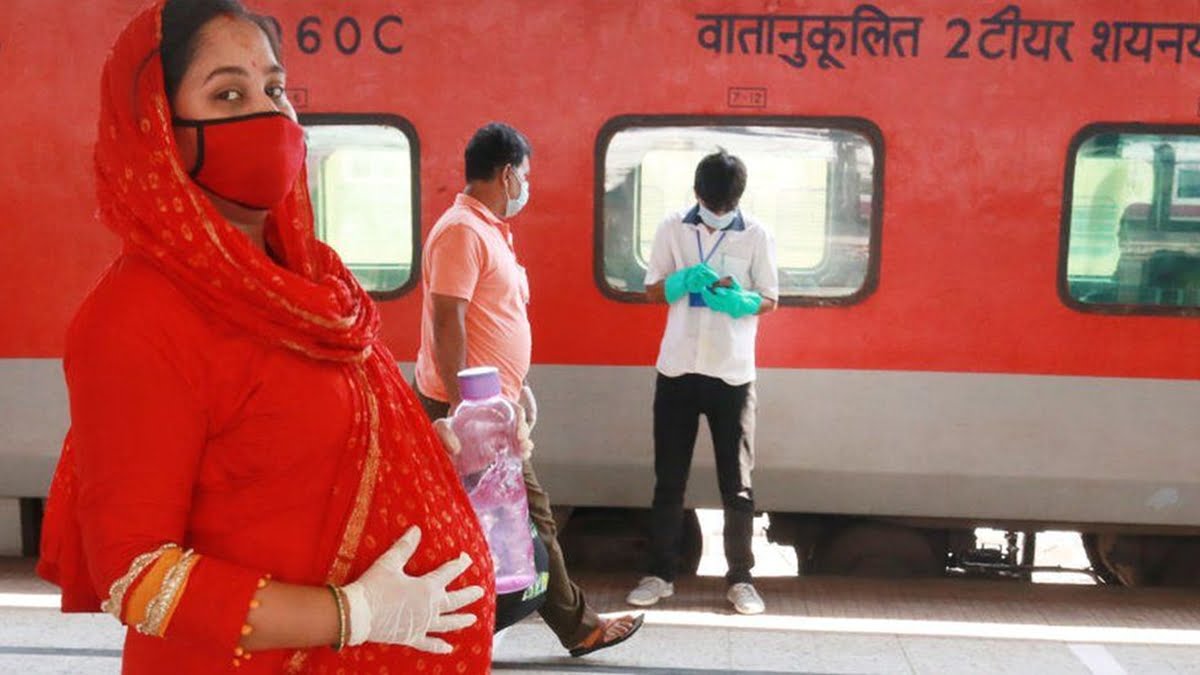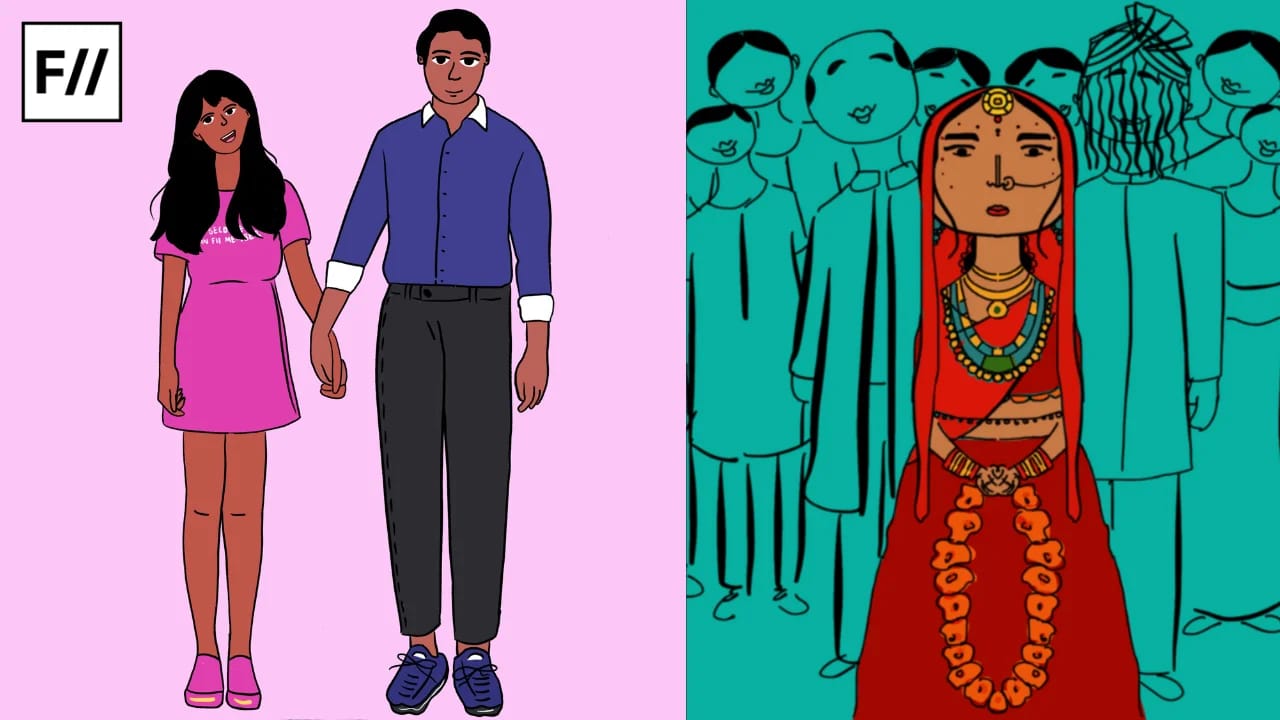In May 2021, China announced its three-child policy, following a census report indicating a massive drop in the birth rate. This decision was taken just six years after it altered its one-child policy in 2015. There was a 4% drop in the birth rate in the United States, the biggest fall in the last 50 years. On the other hand, in 2020, Russia’s population saw a more than double decline from 146.75 million in January 2020 to 146.05 million as recorded in January 2021. Apart from the COVID-19 pandemic, the drop in birth rates has also played a significant role in this phenomenon. The year 2020 also saw Japan hitting a record low in terms of the number of babies born.
The worldwide trend of looming childbirths and decrease in population is one of the most important and impactful changes that can have profound consequences in the socio-political, cultural and economic aspects of the global society. However, the lives of women and other female-bodied individuals are expected to be considerably influenced by this situation.
A drop in birth rate is the result of several factors. Years of social, economic and political changes have been responsible for this. Drop in fertility rate, cost of supporting a child, the sheer responsibility of good parenting, and women’s overall increased agency in their private and reproductive decisions have all been important influences in the decline.
Also read: Yogi Adiyanath’s UP Population Control Bill 2021: The Communal, Caste & Gender Implications
A drop in birth rate is the result of several factors. Years of social, economic and political changes have been responsible for this. Drop in fertility rate, cost of supporting a child, the sheer responsibility of good parenting, and women’s overall increased agency in their private and reproductive decisions have all been important influences in the decline.
Young people are growing increasingly distant from the concept of family in itself. Climate change and predictions, and the proliferation of hate politics have contributed to the idea that the world is not a pleasant place for a child.
The invention and commercial availability of the contraceptive pill during the 1960s, and women’s increased participation in education and productive labour, have enabled them to have control over their bodies. A lot of women, especially in the first world nations, are choosing to focus on their career in their twenties, the period when a woman is arguably believed to be most fertile (experts have noted how the impact of age on fertility is not uniform).
What can then be the repercussions on the lives of women throughout the world, when the fertility drop is attributed to the increase in women’s autonomy over themselves? If we look at history, the question of women’s rights has time and again been given a secondary position. Patriarchy and capitalism have jointly tried to keep women in shackles for the mere production of children, as a contribution to the labour force necessary to keep the system running. What is then going to be the impact of the dwindling population on the capitalist mega-structure? And how will the modern capitalist, who has a great influence over governance and policies, react to it?
The anti-abortion movement, gaining momentum in countries like the USA, Poland and Brazil are enough to keep us away from optimism.

The most recent is the case of the anti-abortion law passed in Texas, which made abortion illegal after six weeks, a time period in which most women don’t realise that they are pregnant. The “crime” qualifies as a Class A felony. Unplanned pregnancies and those caused by rape do not qualify for abortion anymore. Doesn’t Margaret Atwood’s The Handmaid’s Tale seem too close to home at this moment?
American Rep. Alexandria Ocasio-Cortex took to Twitter and said, “Ultimately, this is about women’s power. When women are in control of their sexuality, it threatens a core element underpinning right-wing ideology: patriarchy. It’s a brutal form of oppression to seize control of the 1 essential thing a person should command: their own body.”
One cannot ignore the relationship between the growing anti-abortion momentum and the global shift of politics towards the right. Although many countries are taking progressive steps by decriminalising abortions and promoting family planning, there is anticipation among women about the future they have under governments intricately working for the benefit of the capitalists. How will the industrialists who need cheap labour to sustain their profits react to the phenomenon at the end of the day?
Although recent trends and historical statistics are enough to make us pessimistic, there might be a glimmer of hope. In 2020, following the news of the declining birth rate, Vladimir Putin said, “We have to help young people, those who want a family life and are dreaming about children.” Russia extended its maternity welfare for first-time mothers and promised added benefits for children from lower economic backgrounds.
Italy, on the other hand, had introduced a one-time payment of $950, back in 2015, for every couple to whom a child is born. In December 2020, South Korea announced a new policy under which a bonus of $275 would be provided to infants every month for the first year. It also declared a payment of $1827 as cash bonus for expectant parents to take care of prenatal costs.
Also read: Population Control And Its Prejudices Against Marginalised Bodies
Unequal distribution of labour at home, the inability of women with families to excel in their career, double-fold stress in maintaining the home and the job and social rejection of single parenthood are some of the crucial factors.
Although it seems like the world governments have been successful in understanding the economic crisis, they have been unsuccessful in addressing the bigger concerns that lead women and individuals with uteri to choose a childless life. Unequal distribution of labour at home, the inability of women with families to excel in their career, double-fold stress in maintaining the home and the job and social rejection of single parenthood are some of the crucial factors.
While one can be optimistic that the governments will be forced to bring social changes to facilitate a reversal of the phenomenon, one can never be certain. On that account, this is the time for feminists, LGBTQIA+ activists, Human rights professionals, International organizations and climate reformers to come together to strategise and work to sustain the rights that women and other marginalised communities have gained over centuries with constant struggle.
After graduating with English Literature in 2020 from Jadavpur University, Tanisha is currently pursuing Masters in the same department. She is an aspiring writer and journalist with a keen interest in politics, gender studies, education, art, culture, cinema, photography, cuisine and travel. She believes that everything is political, and thus, she looks at things through a sharp political lens. You can find Tanisha on Instagram, Facebook and LinkedIn.
Featured image source: BBC




